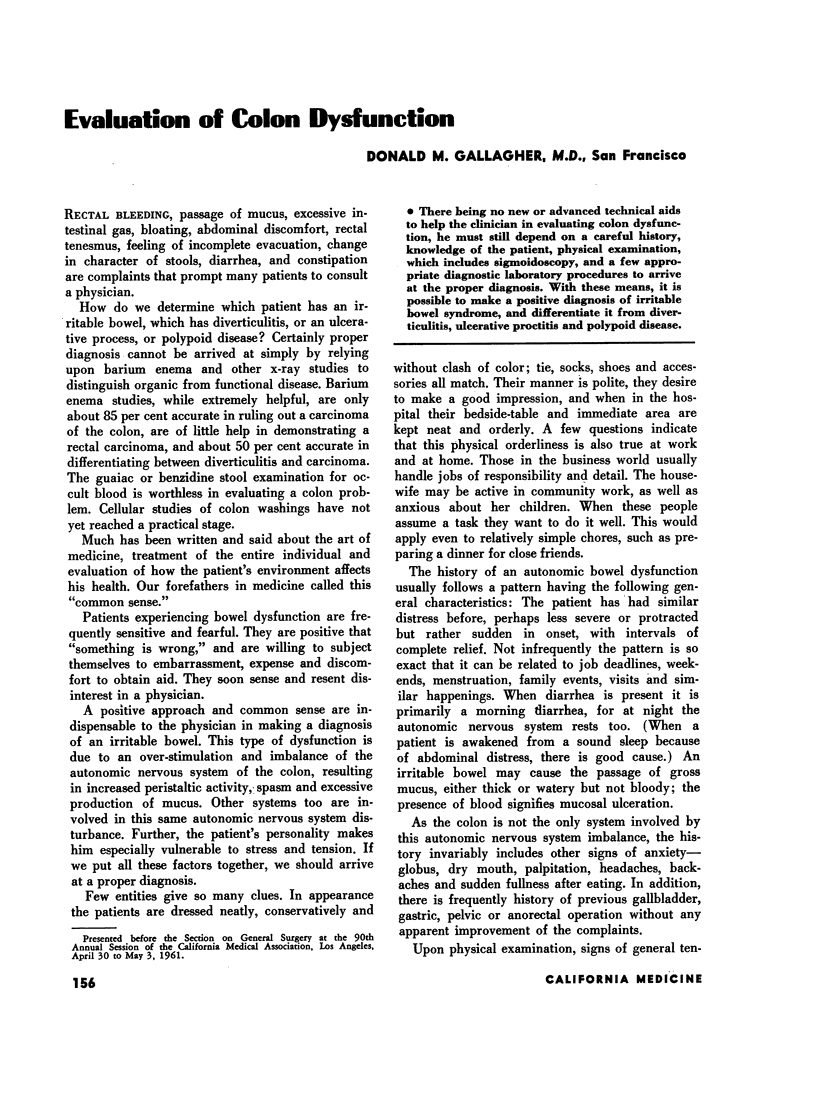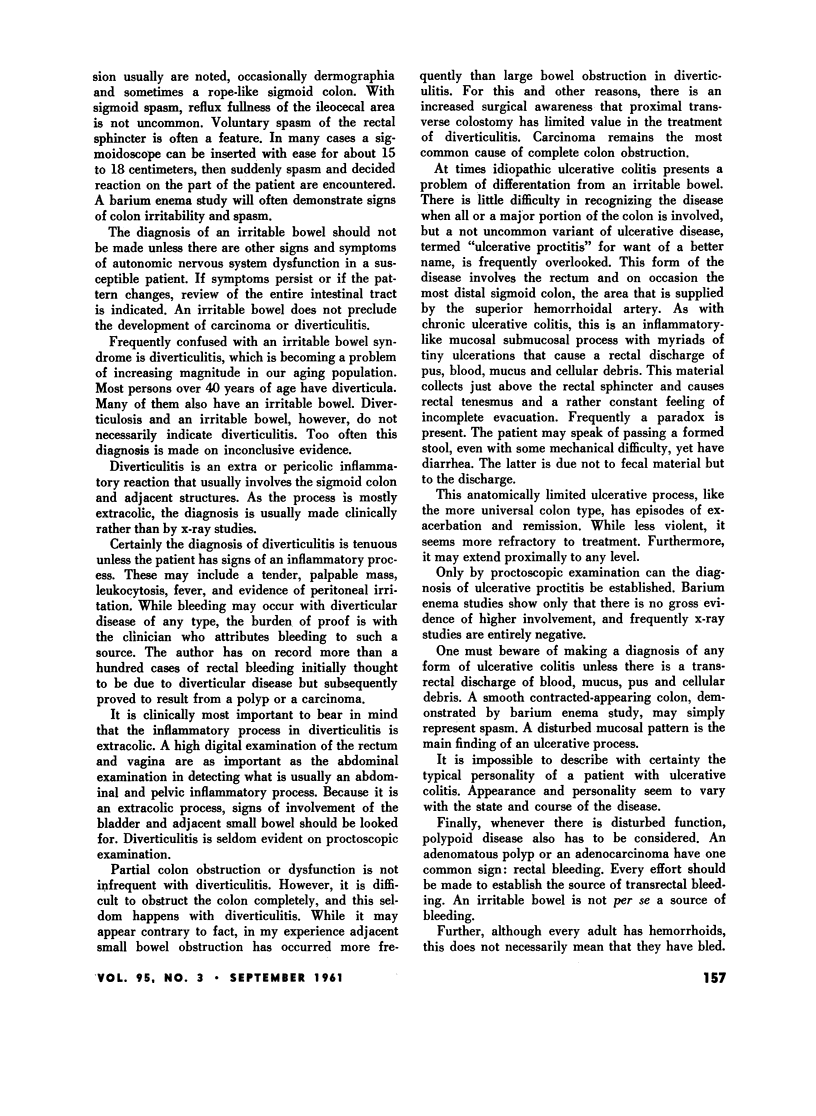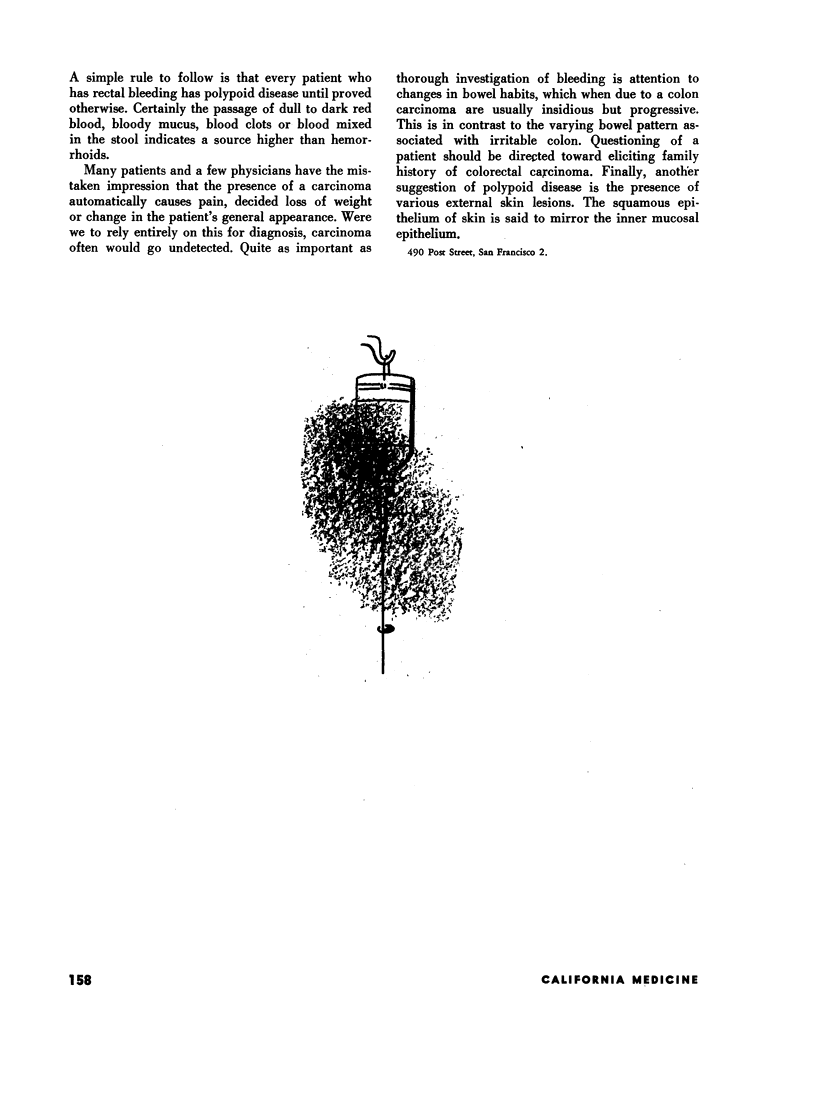Abstract
There being no new or advanced technical aids to help the clinician in evaluating colon dysfunction, he must still depend on a careful history, knowledge of the patient, physical examination, which includes sigmoidoscopy, and a few appropriate diagnostic laboratory procedures to arrive at the proper diagnosis. With these means, it is possible to make a positive diagnosis of irritable bowel syndrome, and differentiate it from diverticulitis, ulcerative proctitis and polypoid disease.
Full text
PDF




